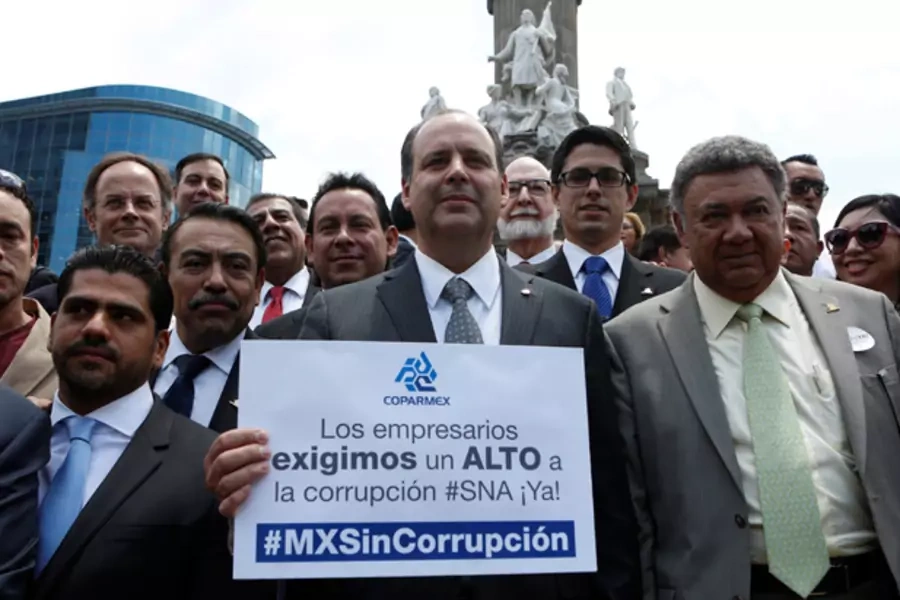Corruption, Politics, and Corporate Transparency in Latin America

More on:
It is Latin America’s anticorruption season. Deep beneath the waves of revulsion about scandal, graft, and the general filthiness of local politics has been a profound concern with democracy. In particular, there is a growing awareness that the dangerous liaisons between corruption and electoral finance threaten the stability and legitimacy of elected governments in the region. While there is plenty of good news about the impressive corruption busters who are shaking up settled patterns of corruption and impunity in the region, many of the underlying links between corporate transparency, corruption, and campaign finance remain deeply troubling and potentially destabilizing.
Of eighty-seven companies mentioned in the FCPA Blog’s most recent Corporate Investigations List—a count of companies whose public filings with the Securities and Exchange Commission reveal that they are the subject of an ongoing and unresolved investigation under the Foreign Corrupt Practices Act—fully twenty-six are Latin American. Given that Latin America accounts for only 7 percent of the global economy, the fact that it accounts for 30 percent of current enforcement actions is impressive. Equally remarkable is that Brazil alone accounts for more than one in five of the companies on the list.
Of course, enforcement actions by U.S. regulators only target companies traded on the U.S. markets. The longstanding prevalence in Latin America of closed companies and conglomerates controlled by single families means that many regional corporate leaders are not publicly traded, much less traded on U.S. stock exchanges where they would be susceptible to U.S. regulation.
Furthermore, it might be argued that much corruption is simply illegal enrichment, and does nothing to fund campaigns. But personal enrichment often comes at the cost of private-regarding policies. More damaging still is that as companies across the region increasingly expand beyond their domestic markets and into neighboring economies, they sometimes carry with them the nefarious practices of political influence-peddling that helped them dominate at home. By way of example, Odebrecht, the once-massive construction firm at the heart of Brazil’s Lava Jato case, has expanded significantly to neighboring countries since the turn of the century. In its baggage train it carried significant campaign contributions, whether to Peruvian candidates with a role in the construction of massive interoceanic highways, or to Panamanian politicians with influence in over-priced public works projects.
Recognizing the dangers of corruption to electoral competition, the investigations that have swept the region in recent years have triggered a variety of changes in domestic laws aimed at destabilizing the nexus between politics and corruption. These include a ban on corporate donations in Brazil, a similar ban combined with campaign spending limits in Chile, and this week, after months of heavy civil society prodding, transparency requirements for politicians and the strengthening of anticorruption bodies in Mexico.
But as a Transparency International report published earlier this month demonstrates, emerging market multinationals are lagging behind in the push for greater corporate transparency. Publicly listed companies do better than privately held companies, but overall, the results show that less than half of the emerging market multinationals are transparent about their internal anticorruption programs; only 47 percent report transparently on their holdings and subsidiaries in other countries; and a measly 9 percent report on their activities in other countries even though, on average, these multinationals have operations in twenty-six countries each.
Latin American multinationals account for about a fifth of the index, and they perform about 10 percent better than the (abysmal) index average. But given that their home countries—Argentina, Brazil, Chile and Mexico—are all democracies, and half of the multinationals in the global sample are from non-democratic countries, perhaps we should expect even better from the multilatinas?
Further regulation and red tape may have perverse effects, of course. But increased corporate transparency standards, especially if adopted voluntarily, might prove to be a competitive advantage, especially as the regulatory environment in Latin America is tightening anyway under citizen pressure. Under these new conditions, both multinationals and smaller firms in the region may see improved transparency standards as a way of simultaneously enhancing domestic politics in their home countries and improving their business prospects abroad.
More on:
 Online Store
Online Store